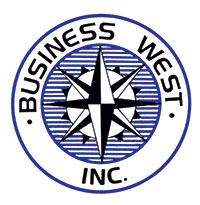About a year and one-half ago, I attended a news conference in the auditorium at Wyandotte High School for what was touted as a very major announcement. The content was a very closely guarded secret.
I only could imagine that this announcement was akin to the second coming of the Messiah. However, it was that Google was coming to Kansas City, Kansas, after a competition that involved more than 1,000 cities. Kansas City, Mo., was added later, along with cities in Northeast Johnson County.
The discussion about Google and other aspects of ultra high-speed fiber were topics at the Congressional Forum Friday, Aug. 17 at the Reardon Convention Center.
Ray Daniels, the retired superintendent of the Kansas City, Kansas, School District, and Mike Burke, a Kansas City, Mo., lawyer, are co-chairmen of the Mayors’ Bi-State Innovation Team. This group has developed a report that ponders the many implications of this high-speed broadband.
Daniels said this report is not just about Google. However, it is very clear that Google’s arrival is what has motivated much of this attention.
The report tells of extensive meetings with representatives from neighborhoods, schools, libraries, healthcare providers and the arts community, asking questions about how to take advantage of this high-speed opportunity. The report talks of the need for universal service so that everyone would have access.
The Innovation Team is hoping for a $1 million federal grant to continue its work.
In the meantime, I have had discussions with various folks about the issue of universal service. Companies such as AT&T are not too happy they have to play by the universal service rule while Google does not and comes in and “cherry picks” its customers. Pam Curtis, an aide to Mayor Joe Reardon, is quick to deny that “cherry picking” allegation, saying that Google has a right to give customers a choice.
Google is searching for customers in various neighborhoods. Public buildings including Arrowhead Middle and Claude Huyck Elementary schools, the West Wyandotte Library and the Court House Annex in the neighborhood where I live would benefit from free Google service if enough people sign up by Sept. 9.
Daniels said that there would be many educational opportunities with this high-speed Internet. He said information technology students here could take advantage of real-time teleconferencing with top-level digital experts in such places as Singapore. High quality imaging could enhance the practice of medicine, he said.
Google has masterminded a very crafty public relations campaign with a carefully planned effort to control the flow of information. Those involved in the initial announcement last year had to sign legally binding confidentially statements agreeing not to talk about Google before the initial presentation.
Although Google’s development agreement with the City of Kansas City, Kansas, is not exclusive and does not ask for any tax breaks, it does provide for “quick, diligent review of all applications for permits…” and the “use of the dedicated city project team” for on-the-spot exception where necessary to avoid delays. It also calls for the city “to cooperate on all publicity and public relations for the project.” Translation: Google is the preferred Internet provider.

Murrel Bland is the former editor of The Wyandotte West and The Piper Press.
He is the executive director of Business West.
